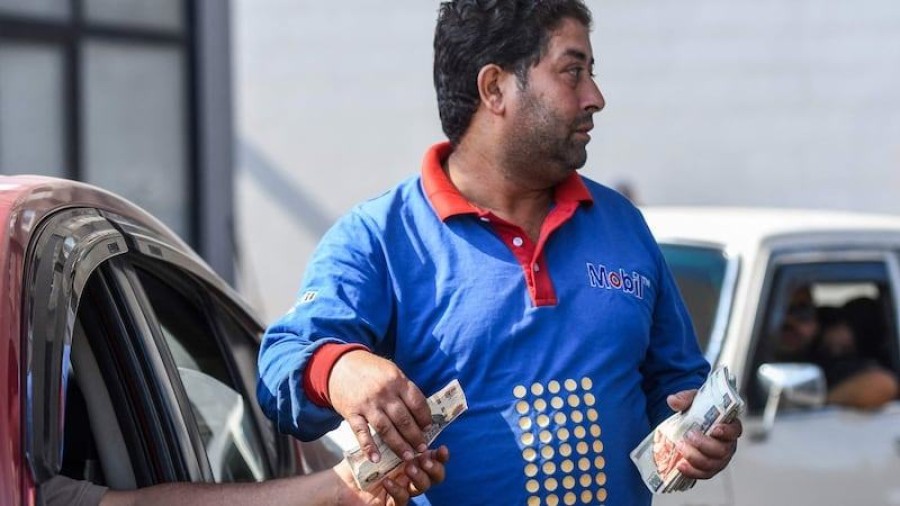IMF Approves $820m Egypt Loan but Calls for More Reforms

The International Monetary Fund released about $820 million in funding to Egypt after the completion of the third review of its extended loan programme but called for more reforms in the Arab world's most populous country.
The Egyptian authorities’ recent efforts to “restore macroeconomic stability have started to yield positive results”, the fund said on Monday.
“Inflationary pressures are gradually abating, foreign exchange shortages have been eliminated, and fiscal targets (including related to spending by large infrastructure projects) were met. These improvements are beginning to have a positive effect on investor confidence and private sector sentiment,” the IMF said.
Egypt, grappling with a severe economic crisis, has been implementing an IMF-backed economic reform programme since 2022 which saw it devalue its currency four times and substantially cut
The move marked the second time the government has raised prices since the IMF expanded its loan programme by $5 billion in March.
The government's efforts to lift subsidies have been met with resistance from citizens who say their living costs have been soaring in recent years. The situation has been exacerbated by continuing power cuts, which have disrupted daily life and sparked anger among Egyptians.
A data-driven approach by the Central Bank is needed to lower inflation and inflation expectations, the IMF said on Monday.
Ongoing fiscal consolidation efforts will help place public debt on a “decisive downward path”.
“To ensure that resources are still available to meet vital spending needs to help Egyptian families, including on health and education, particular attention will be needed to strengthen domestic revenue mobilisation and contain fiscal risks from the energy sector,” the fund said.
“This will also assist in generating some fiscal space to expand social spending in support of vulnerable groups.”
The fund also said that the regional environment remains difficult amid the Gaza war and tensions in the Red Sea.
Earlier this month, Egypt's Suez Canal, a critical component of the country's economy, reported a 23 per cent drop in annual revenue for the fiscal year 2023-24, mainly due to the effect of attacks by Yemen's Houthis on cargo vessels in the Red Sea.
Total revenue for the 12 months ending on June 30 was $7.2 billion, a decline from $9.4 billion during the same period in the previous year, the Suez Canal Authority said.
The number of ships passing through the canal also fell during the period: 20,148 vessels, carrying 1 billion tonnes, transited the canal in 2023-24, compared with 25,911 with 1.5 billion tonnes in the previous fiscal year.
“Risks remain significant. Regional conflicts and uncertainty about the duration of disruption of trade in the Red Sea are important sources of external risk,” said Antoinette M. Sayeh, deputy managing director and acting chair of the IMF.
“Maintaining appropriate macroeconomic policies, including a flexible exchange rate regime, would help ensure economic stability,” she said.
Managing the resumption of “capital inflows prudently” will also be important to contain potential inflationary pressures and limit the risk of future external pressures, she added.
The fund also called for more efforts to introduce the state ownership policy initiative, including enhancing its divestment programme, streamlining business regulations to set up new firms, expediting trade facilitation practices, and creating a “level playing field” that avoids unfair competitive practices by state-owned companies.
It also called for better management practices and competition in the banking sector.
“Reforms that boost tax revenue, deliver a more robust debt management strategy, and bring additional resources from divestment to debt reduction would create space for more productive spending, including additional targeted social spending,” said Ms Sayeh.
